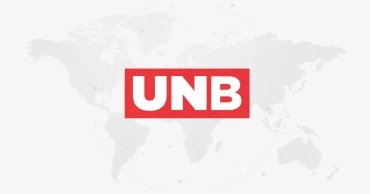Bangladesh energy
Renewable energy: 40% target ‘ambitious, but roadmap absent’
Bangladesh has set a goal of generating 40 per cent of electricity from renewable sources in the next 20 years, but a roadmap on how to reach that lofty target is absent.
The government has adopted a mega plan on power: to boost electricity production to 60,000 MW by 2041 with renewable energy’s share rising to 24,000 MW, which now stands at 700 MW.
Energy experts and stakeholders in the green energy sector believe a comprehensive and inclusive roadmap is necessary to reach the target of 24,000 MW of electricity from renewable sources in the next 20 years.
Read Bangladesh’s single largest rooftop solar power plant inaugurated in Korean EPZ
State Minister for Power, Energy and Mineral Resources Nasrul Hamid unveiled the government’s latest vision on renewable energy during a Bangladesh-UK Climate Partnership Roundtable on June 2 in the city.
President of COP26 Alok Sharma, Foreign Minister AK Abdul Momen, and Environment, Forest and Climate Change Minister Shahabuddin Uddin were present at the function.
Earlier, Bangladesh had set a plan to generate 10 per cent of electricity from renewable sources by 2020. But it could raise it nearly 3 per cent only.
Also read: Renewable energy could be Bangladesh’s best option post Covid-19
Data available from the Sustainable and Renewable Energy Development Authority (Sreda) shows the country now generates 730 MW from renewable sources, including solar, wind and hydro.
About the new target, Nasrul said he is confident of achieving the goal as the government is determined to do this as part of its commitment to the Climate Vulnerable Forum (CVF) where Bangladesh is the chair.
“We’ve already awarded a good number of contracts in public and private sectors for renewable energy plants which will cover 15 per cent while the country is trying to import hydro electricity from Nepal and Bhutan,” he said.
Read EGCB signs MoU with Marubeni to build 100 MW solar plant in Sonagazi
“A deal is ready to be signed with Nepal for importing 700 MW hydro power from Nepal while negotiations are on with Bhutan to import hydro power from the Himalayan nation,” he claimed, adding that if such moves become successful it would hugely boost the country’s renewable energy generation.
Nasrul thinks the technologies on green energy are changing so fast that no long-term plan should be followed.
“Instead, the country should work out a short-term plan for two or five years as a dynamic one to adopt new technologies,” he told UNB.
Read Solar power plant in Manikganj starts commercial operation
Nasrul said the new target will be aligned with the next Power System Master Plan (PSMP).
4 years ago

